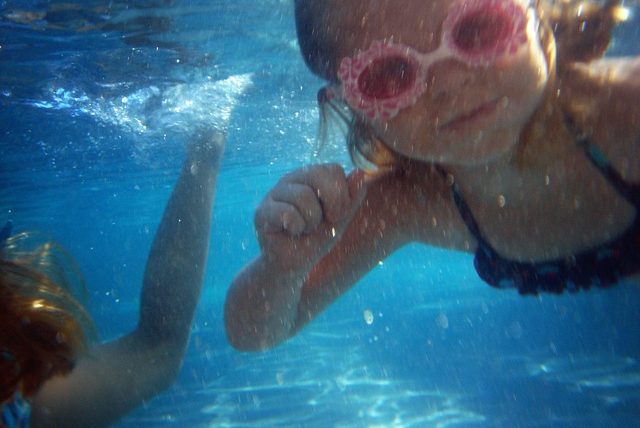
I have always been a believer in readiness in a sense that when children are ready – they will do it. Watching my own children has always confirmed this belief for me. When they are physically, emotionally and cognitively ready – they will crawl, they will walk, they will talk, they will read, they will ride a bike – even swim. They don’t need to be taught these things because when they are ready, they can confidently figure it out. It is with the lack of pressure that children can move forward with ease.
Many milestones have come for my two kids this summer. It seems the long, lazy days of summer have allowed them to find their groove and with that – their confidence. My son, at 6 ½ learned to ride a bike after showing no previous interest. One day he just got on and rode – beaming with pride. He rode his first wave on a body board after spending many years clinging to me in the ocean. Now he proudly dives into the bigger waves head first. He joined a soccer team (his choice) where he didn’t know a soul, he’s tried new foods after years of me quietly accepting his limited palette. This summer he has blossomed and it has shown me that all my hard work at practicing patience and stifling my urge “to show him” has paid off. I can finally say I am comfortable accepting his timetable.
My almost 4 year old daughter who has always loved the water, but has never wanted lessons, just jumped from the steps and swam to me one day. I gasped as she did it, but stayed still (and somewhat calm) until she surfaced and when she did, both of us were wide eyed as she exclaimed “Mama, I thought I could swim – AND I COULD!” Both of us laughed with relief as she repeated the new skill over and over.
I reflected on this with a friend whose daughter had also taught herself to swim this summer and we savored the fact that we hadn’t done swim lessons that were popular amongst friends. We didn’t have to do all that. All we had to do was wait, watch and enjoy or in the words of Magda Gerber, “Do less, observe more, enjoy most.”
Here is a video of my friend’s little 2 ½ year old swimmer. Completely self-taught. Isn’t she Awesome?! Please share your experiences with readiness in the comment section.
Other posts you may like:
Waiting on Readiness: Sports and Other Things Preschoolers Don’t Need.
Parenting a Healthier Generation – Janet Lansbury.
The Only Six Words Parents Need to Say to Their Kids About Sports

Big things for us this summer too. We spent a month away from home vacationing. No lessons, classes, or structured activities during this time, Just lots of time enjoying the sunshine, family, and places as visited. Although my son has had swim lessons over the past year, his progress has been slow. Too many transitions of instructors, too much expectation within that setting, and the worry that those things create even led to a regression of skills at one point. However, while away from it all, our son’s swimming skills just exploded. He went from avoiding going under the water to completely swimming across a pool underwater, without floatation devices, within one day. Again. And again. It was amazing. So, yup, as Magda Gerber said “readiness is when they do it.”
I think this is awesome, but I have a question. What about lessons that a child wants? For example, if a child wants to learn swimming techniques, such as how to do the breast stroke, or to play an instrument, it seems to me that those might require some lessons. I’m thinking of school-aged children.
Thanks!
If a child wants lessons – he is ready! It’s the forcing and the pressure that can cause a dislike of the activity if the child truly is not ready. It’s better to be comfortable at their pace than uncomfortable at someone else’s.
Awesome experience, it’s a MUST to read this article. Your daughter is a genius.
Why thank you Helen!
It is very good story, Thank your for your share.
I am a swim school owner and love this concept. We work with adults who are afraid of water and many stories come from their experience in swimming lessons. There is a disconnect between teaching how the water works (what I would call swimming) and competitive strokes to move efficiently and faster through the water. Swim lessons focus on the later and miss the deep love and understanding of the water. Most adult I talk with who are confident swimmers will really go back to “that one summer we spent at the lake” not swim lessons as the time they “got it”. Instruction is for advancing and honing a skill not for developing love, self direction and internal understanding. The only difficulty with your article is that 50% of adults cannot swim therefore their ability to create a safe space for their children to explore and learn is very limited.